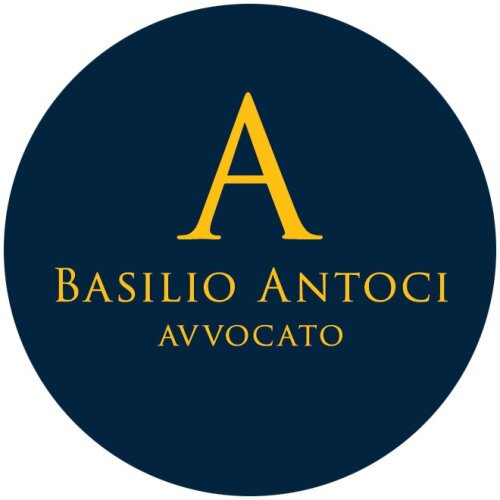Best Inheritance Law Lawyers in Italy
Share your needs with us, get contacted by law firms.
Free. Takes 2 min.
Or refine your search by selecting a city:
List of the best lawyers in Italy
1. About Inheritance Law in Italy
Inheritance law in Italy governs how a deceased person’s assets are distributed. The Italian Civil Code sets out rules for intestate succession and for dispositions made through wills. In practice, this means documents like testaments or legacy allocations shape who inherits and in what shares.
A core feature of Italian succession is the legittima, or forced share, which protects close relatives. This mechanism limits a testator's ability to disinherit certain heirs completely. The process of handling an estate after death is called succession or probate, and it can involve multiple steps across different jurisdictions if assets lie abroad.
Italian law also distinguishes between testamentary succession and intestate succession. If there is a valid will, it guides distribution; if not, the statutory order of heirs applies. In both cases, creditors and tax considerations may impact how assets are allocated and transferred to heirs.
When real estate or assets are located in Italy, legal formalities like probate, declarations, and filings with public registries come into play. The system emphasizes clear documentation and the orderly transfer of title, often requiring professional guidance to avoid delays and disputes.
EU Regulation 650/2012 governs cross-border successions and helps determine which law applies when assets span more than one country.
For readers seeking authoritative overviews and current texts, consult official sources such as Normattiva for current laws and Agenzia delle Entrate for tax implications on inheritance.
2. Why You May Need a Lawyer
Below are concrete, real-world scenarios in Italy where seeking professional legal counsel in inheritance matters is important. Each scenario reflects typical complexities encountered by residents and property owners in Italy.
- Disputes over a will’s validity or contents. A spouse alleges the will excludes rightful heirs or misstates assets. A lawyer helps challenge or defend the will and clarifies the bequests, ensuring compliance with legittima rules.
- Handling intestate succession when there is no will. When a parent dies without a will, the distribution follows statutory shares. An attorney guides the process to identify heirs, prepare the declaration of succession, and manage filings with the relevant authorities.
- Cross-border assets and non-residents inheriting Italian property. If an heir lives abroad or owns assets in multiple countries, a lawyer helps coordinate with foreign laws and the Italian system, reducing conflicts over applicable law and jurisdiction.
- Disputes with creditors or claims against the estate. Creditors may challenge the estate’s distribution or enforce claims. A legal professional can negotiate settlements and oversee debt satisfaction within legal timelines.
- Taxes and reporting obligations on inherited assets. Inheritance tax and reporting requirements vary with relationship to the deceased and asset type. A lawyer ensures proper filing with the Agenzia delle Entrate and helps minimize unnecessary taxes or penalties.
- Real estate transfers and title clearance for inherited Italian properties. Transferring ownership of Italian real estate requires proper registration with the catasto and the registry. A lawyer coordinates documentation and avoids title issues or delays.
Working with a solicitor or avvocato who specializes in diritto di successione can significantly reduce delays and disputes. A dedicated legal counsel can manage filings, deadlines, and negotiations with heirs and authorities.
3. Local Laws Overview
Italy's inheritance framework rests on foundational statutes and cross-border rules. The key elements below provide a practical outline of the main legal sources involved.
- Codice Civile - Libro II, Successioni (Civil Code, Book II, Succession) establishes the general rules for intestate succession, wills, legittima, and the order of heirs. This is the primary domestic framework guiding how estates are processed in Italy.
- Regolamento (UE) n. 650/2012 (Regulation on cross-border successions) governs which Member State's law applies to a given succession and how to handle recognition and enforcement across borders. The regulation entered into force in 2015 and affects Italian cases with assets in multiple countries.
- Agenzia delle Entrate (Italian Tax Authority) administers inheritance tax, donazioni, and related filings. The agency issues guidance on tax rates, exemptions, and forms required for declaring inherited assets.
Recent trends include greater attention to cross-border issues and the interaction between Italian succession rules and EU-wide coherence standards. For practical navigation, consult official sources for current texts and administrative guidance.
Key sources for further reading and updates:
Normattiva - official repository of current Italian law and changes.
Agenzia delle Entrate - guidance on inheritance tax and filing requirements.
EUR-Lex - EU Regulation 650/2012 on cross-border successions.
4. Frequently Asked Questions
What is the difference between inheritance and succession in Italy?
Inheritance refers to the transmission of assets from a deceased person to heirs. Succession is the legal process that governs how that transfer takes place, including legal steps, taxes, and registrations.
How do I begin a probate when a relative dies in Italy?
Start by obtaining the death certificate and the will if one exists. You then file a declaration of succession with the local commune and register inherited assets with the registry offices. A lawyer can coordinate deadlines and document gathering.
When does Italian inheritance tax apply and how is it calculated?
Inheritance tax applies to assets inherited from a deceased person. Rates depend on the relationship to the decedent and the value of the assets. Consult the Agenzia delle Entrate for precise rates and exemptions.
Where can I find the legal texts governing succession in Italy?
The Codice Civile contains the core rules on succession. Current texts are available on Normattiva, the official Italian law portal, for free access.
Why are forced heirs important in Italian succession?
Forced heirs have reserved shares that cannot be completely disinherited. This mechanism protects close family members and shapes how assets can be distributed by will.
Can a non-resident inherit Italian property?
Yes, non-residents can inherit Italian assets. The process involves Italian authorities and may require cross-border coordination under EU rules.
Should I hire a lawyer for an Italian probate case?
Yes, especially if assets are complex, involve foreigners, or cross borders. A lawyer helps avoid delays, ensures compliance, and protects heirs' rights.
Do I need a will to avoid intestate succession?
A will can direct asset distribution, but it must respect legittima rules. Without a will, the statutory order of heirs governs distribution.
Is there a time limit for presenting a claim to the succession?
Yes, deadlines exist for filing declarations of succession and for challenging wills. Timelines vary by location and case specifics, so timely legal guidance is essential.
How long does probate typically take in Italy?
Probate duration varies widely from a few months to multiple years depending on complexity, assets, and family disputes. A lawyer can provide a case-specific timeline.
What documents are usually required for an Italian inheritance case?
Common documents include death certificate,Will (if any), family register, property deeds, tax documents, and identification for heirs. Asset valuations and registry extracts may also be needed.
Can I challenge a will in Italy?
Yes, beneficiaries can contest a will under certain grounds, such as lack of capacity, undue influence, or invalid formalities. A lawyer guides the challenge process.
Do I need to register inherited real estate in Italy?
Yes, you must register the transfer with the Italian land registry and, if applicable, with the catasto. Elevates the risk of delays and title issues if not properly handled.
5. Additional Resources
Useful official resources for those navigating Italian inheritance matters include:
- Agenzia delle Entrate - official source for inheritance tax rules, exemptions, and filing requirements. Offers guidance on how to declare inherited assets and calculate taxes.
- Normattiva - official repository of current Italian laws, including the Civil Code provisions on succession. Provides updated texts and amendments for easy reference.
- EUR-Lex - official EU portal hosting the Regulation 650/2012 on cross-border successions, including applicability to Italy and related notices.
6. Next Steps
- Define your goal and timeline. Clarify whether you want to contest a will, handle an intestate succession, or manage an estate with cross-border assets. Set a target date for filing required documents.
- Gather key documents. Obtain death certificates, the will (if present), family records, asset lists, and property deeds. Collect tax documents and prior correspondence with authorities.
- Research potential lawyers. Look for avvocato specializing in diritto di successione. Check professional directories and recent case experience with similar matters.
- Schedule initial consultations. Arrange meetings to discuss your goals, expected costs, and timelines. Prepare specific questions about legittima and cross-border issues.
- Request written fee proposals. Obtain clear estimates and a written agreement outlining rates, caps, and anticipated costs. Confirm who will handle filings and deadlines.
- Choose your legal counsel. Select the attorney who demonstrates practical plan, clear communication, and transparent pricing. Ensure they are licensed to practice in your jurisdiction.
- Plan the engagement. Sign a formal retainer and outline milestones, required documents, and anticipated timelines. Establish a communication schedule with your lawyer.
Lawzana helps you find the best lawyers and law firms in Italy through a curated and pre-screened list of qualified legal professionals. Our platform offers rankings and detailed profiles of attorneys and law firms, allowing you to compare based on practice areas, including Inheritance Law, experience, and client feedback.
Each profile includes a description of the firm's areas of practice, client reviews, team members and partners, year of establishment, spoken languages, office locations, contact information, social media presence, and any published articles or resources. Most firms on our platform speak English and are experienced in both local and international legal matters.
Get a quote from top-rated law firms in Italy — quickly, securely, and without unnecessary hassle.
Disclaimer:
The information provided on this page is for general informational purposes only and does not constitute legal advice. While we strive to ensure the accuracy and relevance of the content, legal information may change over time, and interpretations of the law can vary. You should always consult with a qualified legal professional for advice specific to your situation.
We disclaim all liability for actions taken or not taken based on the content of this page. If you believe any information is incorrect or outdated, please contact us, and we will review and update it where appropriate.
Browse inheritance law law firms by city in Italy
Refine your search by selecting a city.

















